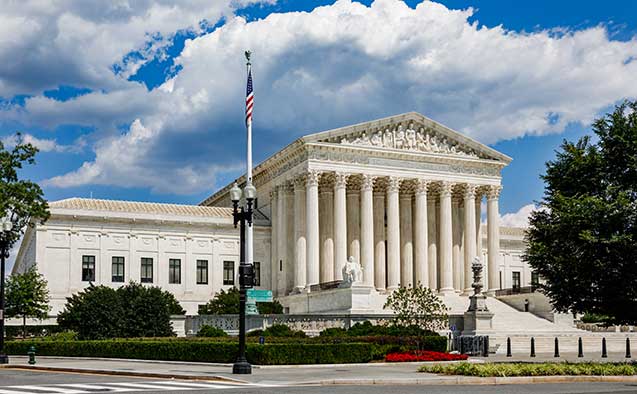One year after Dobbs: State constitutions at the center of battles over abortion rights

After the U.S. Supreme Court issued a June 24, 2022 ruling in the Dobbs case holding that the U.S. Constitution does not protect abortion rights, the debate about protecting or limiting access to abortion has focused to a significant extent on state constitutions.
John Dinan, professor of politics and international affairs at Wake Forest University and author of the recent article, The Constitutional Politics of Abortion Policy after Dobbs: State Courts, Constitutions, and Lawmaking, is prepared to discuss the role and importance of state constitutions in shaping abortion policy in the year after Dobbs.
How have state courts interpreted state constitutions regarding abortion rights after Dobbs?
State constitutions figure prominently in debates about abortion in part because state courts can interpret state constitutional provisions to provide more protection for rights than is guaranteed by the U.S. Constitution. In the year after Dobbs, state courts have frequently been asked to determine whether state constitutional guarantees of liberty, privacy, and equality protect access to abortion. Some state supreme courts, as in Idaho, have ruled that their state constitutions do not protect abortion rights. But other state supreme courts, including in South Carolina, Oklahoma, Montana, and North Dakota, have overturned abortion restrictions on the grounds that they violate state constitutional guarantees.
What effect has the Supreme Court decision had on state judicial elections?

Wake Forest University politics professor John Dinan.
State courts’ ability to determine abortion policy by interpreting state constitutions has led groups and public officials to focus on who serves on state courts and, in some cases, try to change the membership of state courts. Because state supreme court justices in 38 states stand for popular election in some fashion, abortion rights have been a dominant issue in state court elections in the year after Dobbs, most notably in Wisconsin, where an April 2023 election featured more campaign spending than any other judicial election in U.S. history and shifted ideological control of the court.
How have state constitutional amendments shaped abortion rights after Dobbs?
Because state constitutions can be changed relatively easily – and much more easily than the U.S. Constitution – it is also possible to shape abortion policy by enacting state constitutional amendments. In every state, legislators can propose amendments. And in 18 states, voters can place amendments directly on the ballot. Some amendments in the last year have sought to limit state courts’ ability to protect abortion rights, but these amendments were rejected by voters in Kansas and Kentucky in 2022. Other amendments take a very different approach and provide explicit protection for abortion rights. Voters in California, Vermont, and Michigan approved amendments along these lines in 2022, and similar amendments are set to appear on the ballot in Ohio in 2023 and in Maryland in 2024 and perhaps in other states.
Has Dobbs prompted efforts to change the rules for amending state constitutions?
The ability of state constitutional amendments to shape abortion policy has led groups and officials to focus on, and sometimes try to change, the rules for amending state constitutions, generally with the intent of trying to make it more difficult to pass amendments. Voters in Ohio (this year) and Arizona (next year) are scheduled to consider amendments making it more difficult to qualify citizen-initiated amendments for the ballot and in some cases setting a higher threshold for approving them.
Dinan wrote an article this spring for The Conversation: “State battles over abortion are leading to state constitutional amendments – an option in all states and available directly to citizens in 18 states.” He is the author of several books analyzing state constitutions, including “The American State Constitutional Tradition” and “State Constitutional Politics: Governing by Amendment in the American States.”
Media Note: To schedule an interview with Wake Forest political science professor John Dinan contact Keri Brown media@wfu.edu, 336-758-4442 or 336-971-5402.
Categories: Top Stories
Wake Forest News
336.758.5237
media@wfu.edu
Meet the News Team
Headlines
Wake Forest in the News
Wake Forest regularly appears in media outlets around the world.




